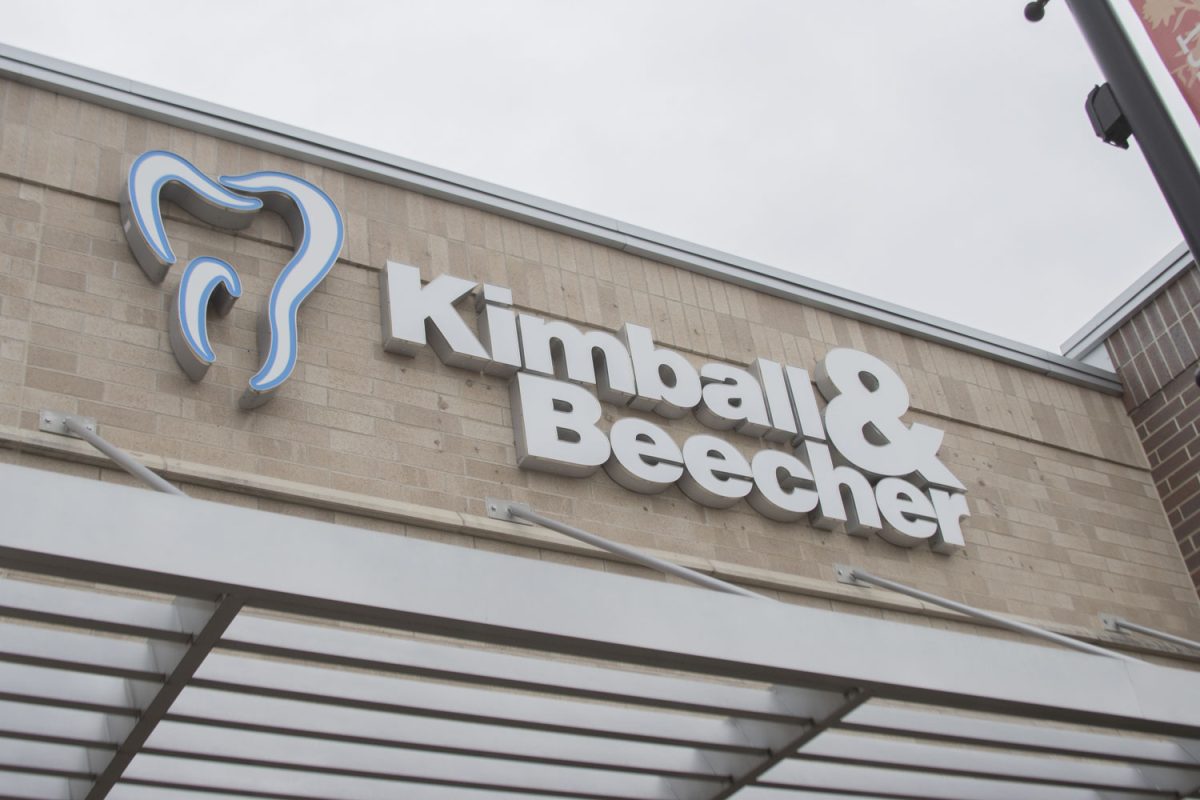A University of Iowa study found in 1992, 62 percent of Iowa dentists were willing to accept all new Medicaid patients without conditions. In 2013, the number dropped to just 16 percent of dentists surveyed.
In light of the increasing need of families who cannot find a dental provider who accepts Iowa Medicaid, Johnson County Public Health decided to take action.
On Feb. 21, Johnson County Public Health’s I-Smile Program partnered with Kimball and Beecher Family Dentistry to host Give Kids a Smile in Iowa City, an event that provides free dental care for children in need.
The event helped provide everything ranging from oral exams to cleanings and fillings, serving approximately 70 kids in four hours at the Kimball and Beecher on 1008 William St, Iowa City.
I-Smile Coordinator Becky Hackett-Leas was excited to partner with Kimball and Beecher for I-Smile’s first time joining the event. I-Smile, a dental initiative launched in 2006 by the Iowa Department of Public Health, helps to connect families with dental care providers while also promoting preventive oral health care.
“We’re really hoping that this becomes something where we can partner with more dental offices and continue with Kimball and Beecher,” she said. “It’s a great event. We really see a lot of benefits to our community and to our county, and we hope that it becomes an ongoing event.”
Iowa City’s Kimball and Beecher Clinic Coordinator Brooke Ullom echoed that excitement. The Give Kids a Smile event has been ongoing for over 10 years in counties like Marshall and Black Hawk, but Friday was the first time it operated in Johnson County.
Ullom emphasized the importance of children’s dental health broadly.
“It all starts in prevention. Every cavity can be prevented,” she said. “Education is also huge. That’s where Johnson County really comes in strong for us, is in the educational piece to those that may not be getting it or unaware of it.”
RELATED: Beyond Teeth Cleaning: Comprehensive Dental Care for the Whole Family
While Iowa dental providers reject many Medicaid beneficiaries due to the program’s low reimbursement rates, access to dental care can be a universal issue.
Hackett-Leas said these dental care boundaries range from unreliable transportation and low income to general strain felt by dental providers.
“We see often when parents request assistance for help getting dental care, one of the biggest overall reasons is the overwhelm of dental providers, including our own University of Iowa College of Dentistry. They have more patients requesting appointments than they do appointment slots,” she said.
Johnson County Public Health Director Danielle Pettit Majewski explained the issue of Medicaid coverage nationally. Iowa is one of only 13 states nationwide with dental coverage as part of its Medicaid program. But as Majewski pointed out, this distinction brings its own set of problems.
“Having that insurance card in your wallet doesn’t make a difference if providers don’t make enough money that they can justify serving Medicaid clients,” she said. “They essentially lose money every time they take a Medicaid client.”
Majewski pointed out the broad scope of the issue, noting 800,000 Iowans are on Medicaid. She further reinforced how overlooked a smile can be.
“When you think about going for a job interview, when you think about going for a date, when you think about just meeting people for the first time, that’s one of the first things people notice about you,” she said. “It gives [children] confidence for life if we’re able to provide good dental care for them.”
Majewski listed the physical impacts of poor dental health. She described how inflammation in the mouth can hurt heart health, worsen the effects of diabetes, and even result in miscarriages.
“We’ve got to also talk about the mental health of the children and the self-esteem that these kiddos are going to get when their cavities get fixed, and when they don’t have that discomfort any longer, it goes further than just physical health,” Hackett-Leas said.



